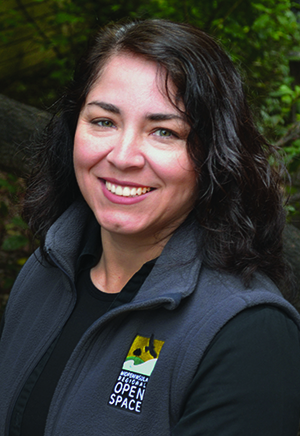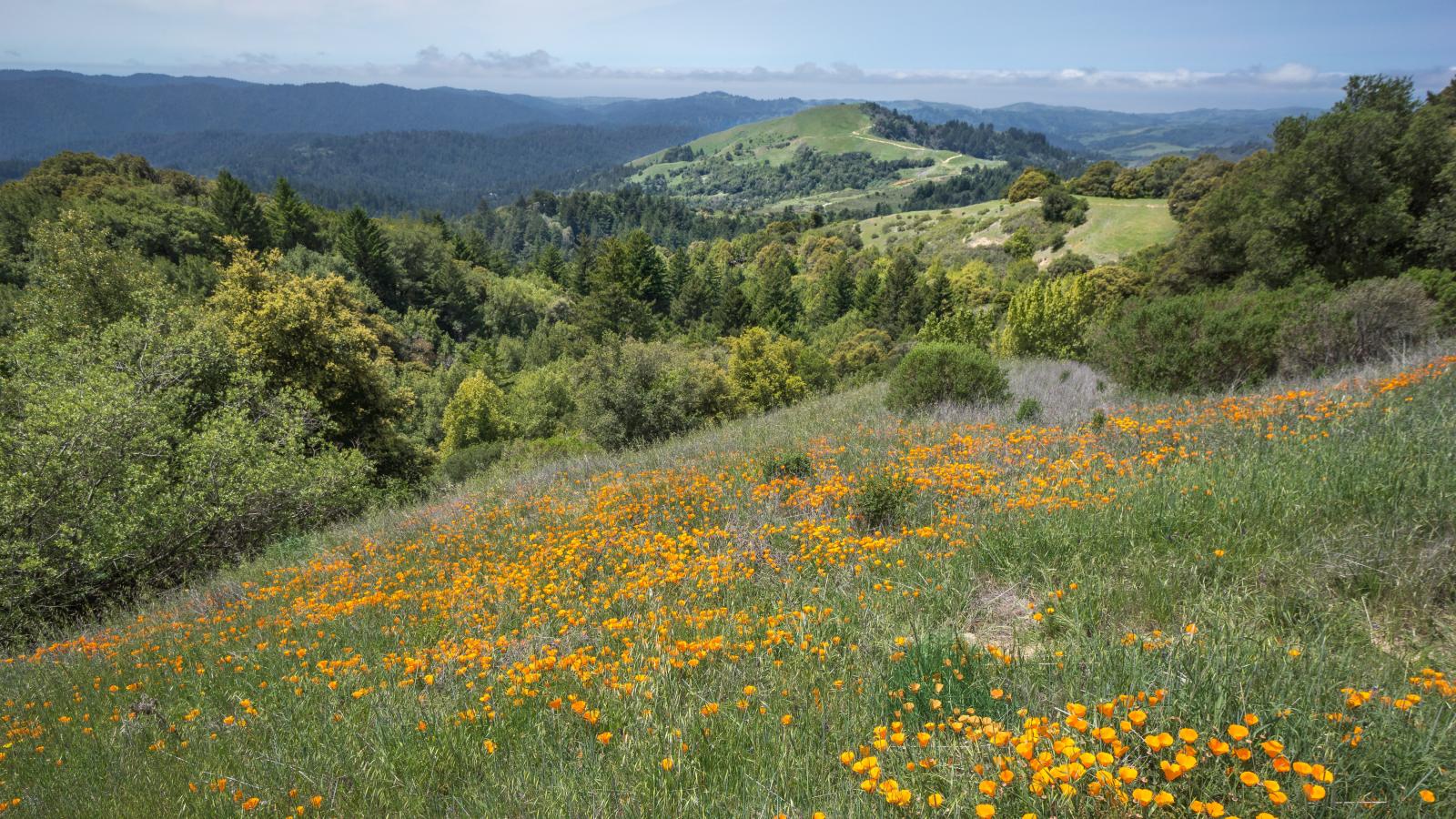
Soon, we will turn the page on 2020. For most of us, that can’t happen soon enough as we reckon with the undeniable human and economic impacts caused by the worldwide pandemic. The CZU August Lightning Complex and other Bay Area fires added another layer of shock and grief. Finding our way forward, in search of restoration and revival, requires that we take stock of what has occurred, and how our lives have shifted to help us regroup and forge a new path.
Although this is undoubtedly a difficult time in human history, it is important to remember that nothing is static. Nature reminds us of this fact. Viewed from nature’s endless horizon, this is only a moment in time, with a long history of events in the past and many more to occur in the future. That we are in a constant state of change is one of nature’s lessons. If we are open, there is plenty nature can teach us as we look to a more hopeful and optimistic future.
Like nature, we do better when we are connected. Together, we have successfully conserved more than 1.3 million acres of open space lands throughout the Bay Area. Now the task before us is to connect these lands through linkages and corridors, allowing wildlife and plants to move safely across landscapes. As humans, we too need avenues for connection. Although we are currently unable to be physically near each other, we are relying on new tools to seek connection – whether it be video conferencing, waving to each other from a distance, or observing how others enjoy the same open spaces we cherish. Our connections may look a bit different at the moment, yet they are nonetheless critical in helping each other overcome challenges and move safely across our own landscapes.
Nature heals quickly under the right conditions. While the beloved redwoods at Big Basin State Park were damaged by the CZU August Lightning Complex Fire, already there are reports of vegetation resprouting and wildlife returning. Although disruptive, fire is a natural part of the redwood forest ecosystem and the forests of Big Basin have burned many times during the past millennia. The iconic “Mother” and “Father” old-growth redwoods remain standing and we are optimistic that they and other surviving old-growth trees will thrive again. As a part of nature, we humans are also able to recover from disruptive events. With the right support and systems in place, we can lift each other up to thrive as a whole community.
The natural world transforms and adapts. Nature is ever evolving. Seasons shift, trees grow, flowers bloom, leaves drop, seeds resow and water flows. While the changes we have witnessed in 2020 have been sudden and unsettling, when contemplated through the lens of nature’s ever-transitioning systems, everything appears more manageable. When we look to nature, we are reminded that as a part of nature, we too have the ability to readjust, recover and renew.
Nature can be part of the solution. Many of us have taken advantage of this time to find moments to slow down and reconnect with nature. Spending time each day outside surrounded by the sights, sounds and smells of nature provides real benefits to our physical and emotional well-being. Just as fire returns nutrients to the soil and stimulates the growth of redwoods and other plants, we can turn to nature to recharge and revive within us the hope, tenacity and ingenuity that keeps us moving forward.
Thankfully, we have each other and our natural open spaces to support our collective path to a better future.
Ana María Ruiz,

General Manager

